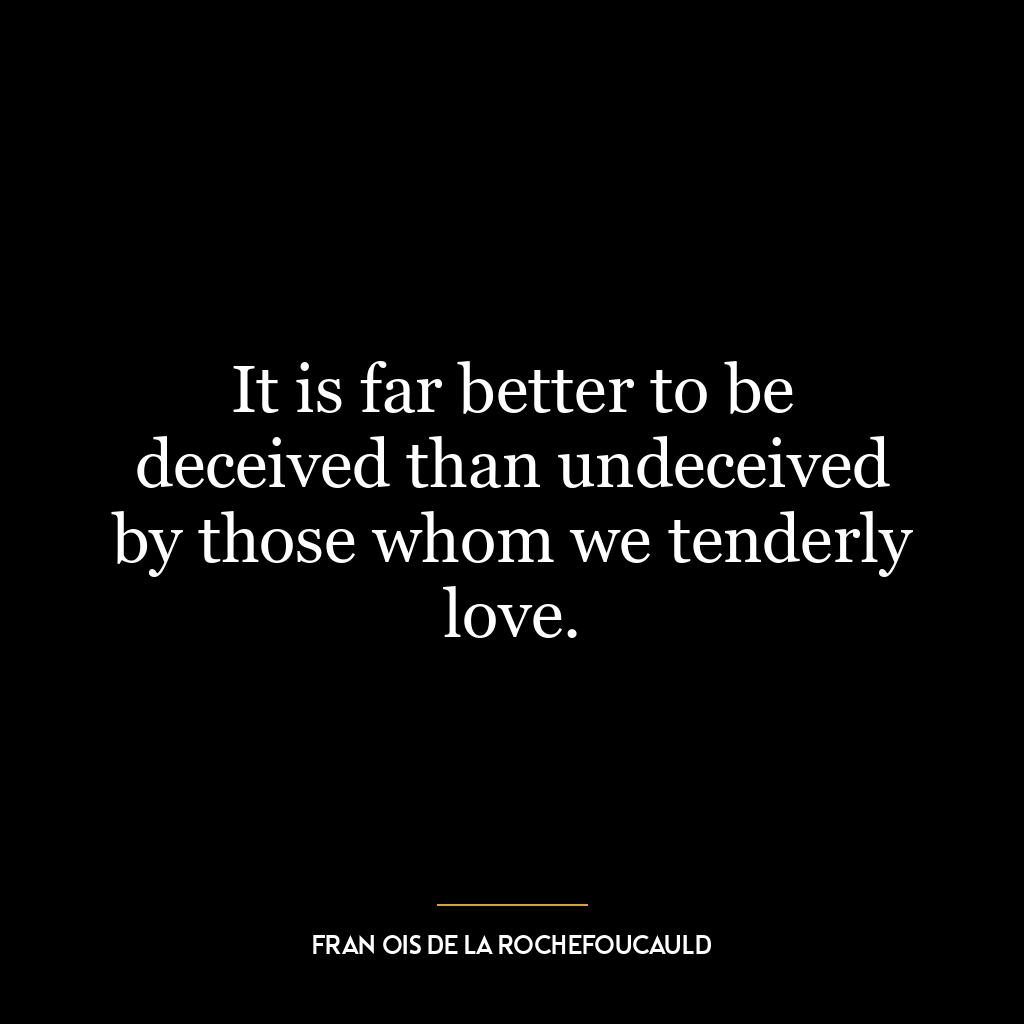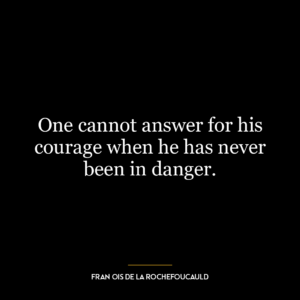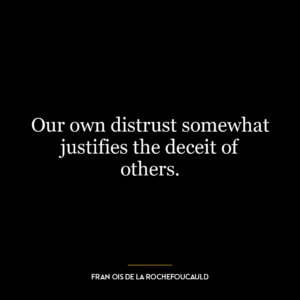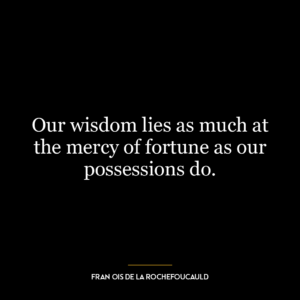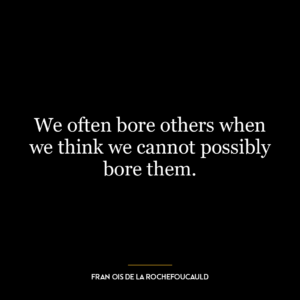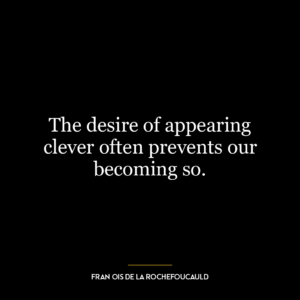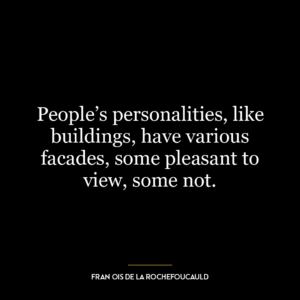It is far better to be deceived than undeceived by those whom we tenderly love.
This quote suggests that sometimes, ignorance is bliss, especially when it comes to the actions of those we deeply care about. If we love someone, we often want to see them in the best light possible, and being deceived by them might be less painful than knowing a harsh truth. The quote implies that the emotional pain that comes from knowing that a loved one has deceived us can be far more hurtful than the act of deceit itself.
In essence, the quote is about the human desire to maintain our positive perceptions of people we love. It suggests that we may prefer to live in a comforting illusion rather than face a harsh reality that could shatter our idealized image of that person.
In today’s world, this quote can be applied to various situations. For instance, in relationships, one might choose to ignore signs of infidelity or dishonesty to maintain the peace or because the truth might be too painful to bear. It can also be seen in the context of social media where people often present an idealized version of their lives, and followers may prefer to believe this illusion rather than acknowledging the probable reality that’s less perfect.
In terms of personal development, this quote can serve as a reminder of the importance of honesty and transparency in relationships. It suggests that deceit, even when well-intentioned, can lead to harm. It can also encourage individuals to face uncomfortable truths for the sake of personal growth. After all, growth often comes from discomfort. However, it also underlines the importance of emotional readiness to handle such truths. It’s a delicate balance between protecting oneself or others and fostering an environment of trust and authenticity.

